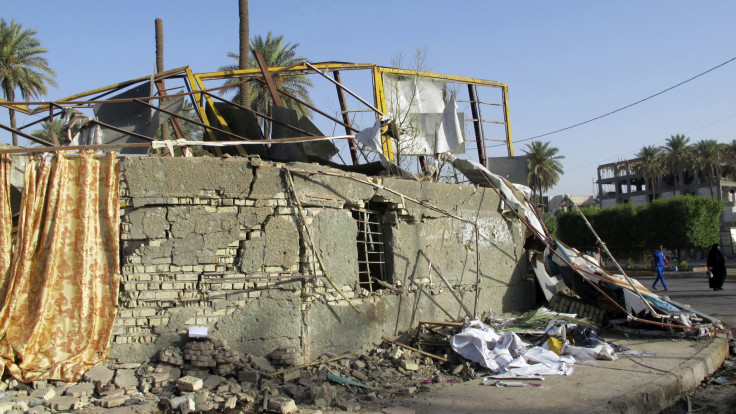ISIS, Unable To Break Through Shiite Militias Around Baghdad, Wages Urban Warfare With Suicide Attacks

Shiite militias supported by the Iraqi government have circled Baghdad in an attempt to keep the Islamic State group from entering the city limits. Unable to take Baghdad by frontal assault, with advancing fighters supported by tanks, the Sunni militant group also known as ISIS has turned to another urban warfare strategy: launching suicide and car-bomb attacks.
ISIS seized great quantities of U.S.-supplied weaponry and ammunition in the fall of Mosul in June, and used it to gain ground in Iraq and Syria. The group took over territory stretching from Aleppo province in northwestern Syria all the way to the outskirts of Baghdad. But so far it has been unable to reach the heart of Iraq, Baghdad, because the central government has mobilized volunteers from the country's Shiite majority to protect it. The cordon around the capital has forced ISIS to use a stealthier, and indiscriminate, methods.
At least 724 civilians have been killed since Oct. 1 in Iraq, many of them from suicide bomb and car bomb attacks, according to Iraq Body Count, a monitoring group that counts civilian deaths in the country. On Tuesday alone, 28 people died in Baghdad in suicide bomb attacks. Thursday, another string of bombings hit Baghdad, killing 38.
The deadliest attack took place when two car bombs exploded in a commercial area in the northern Dolaie neighborhood, killing 14 and wounding 34, the Associated Press reported. In another attack, a man drove a car filled with explosives into a police checkpoint in Talibiyah, killing at least 12 people. Another 12 civilians were killed when car bombs exploded in the northern Hurriyah district and in the Shula neighborhood. All the attacks on Thursday took place in Shiite areas; they brought the death toll in Baghdad since last week to 150.
Suicide and car bomb attacks are nothing new to Iraq. Al Qaeda relied heavily on suicide attacks during the U.S.-led occupation from 2003 to 2011. That's why it is not always clear who is responsible for the attacks. Last week, though, ISIS claimed responsibility for a string of attacks on Iraqi and Kurdish security officials in the north of the country.
It was one of the deadliest weeks in Iraq since ISIS began its offensive in June. More than 124 people were killed by car bombs or suicide bombers, according to the Iraq Body Count. The attacks marked the beginning of a new ISIS campaign to target top security officials in Iraq: Gen. Ahmad Sadak al-Dulaymi, the Anbar provincial police chief, was assassinated while traveling in a convoy north of the province’s capital Ramadi, where Iraqi security forces are attempting to oust ISIS.
Senior U.S. politicians and military analysts have said ISIS does not have the capability to take Baghdad. But within the past week, the militant group has shown it is able to wage a devastating fight against not only security officials, but civilians, without losing any of its own trained fighters or using ammunition. The suicide and car bomb attacks can be carried out by people who have not been trained as fighters, and also do not require ISIS to use up valuable ammunition.
When the U.S. military was stationed in Iraq, it fielded a team of experts that deployed to areas around Baghdad and disabled bombs found in places such as cars or open markets. It is unclear if the Iraqi army has deployed its own teams to search for and disable the bombs since the U.S. troop withdrawal.
© Copyright IBTimes 2024. All rights reserved.





















